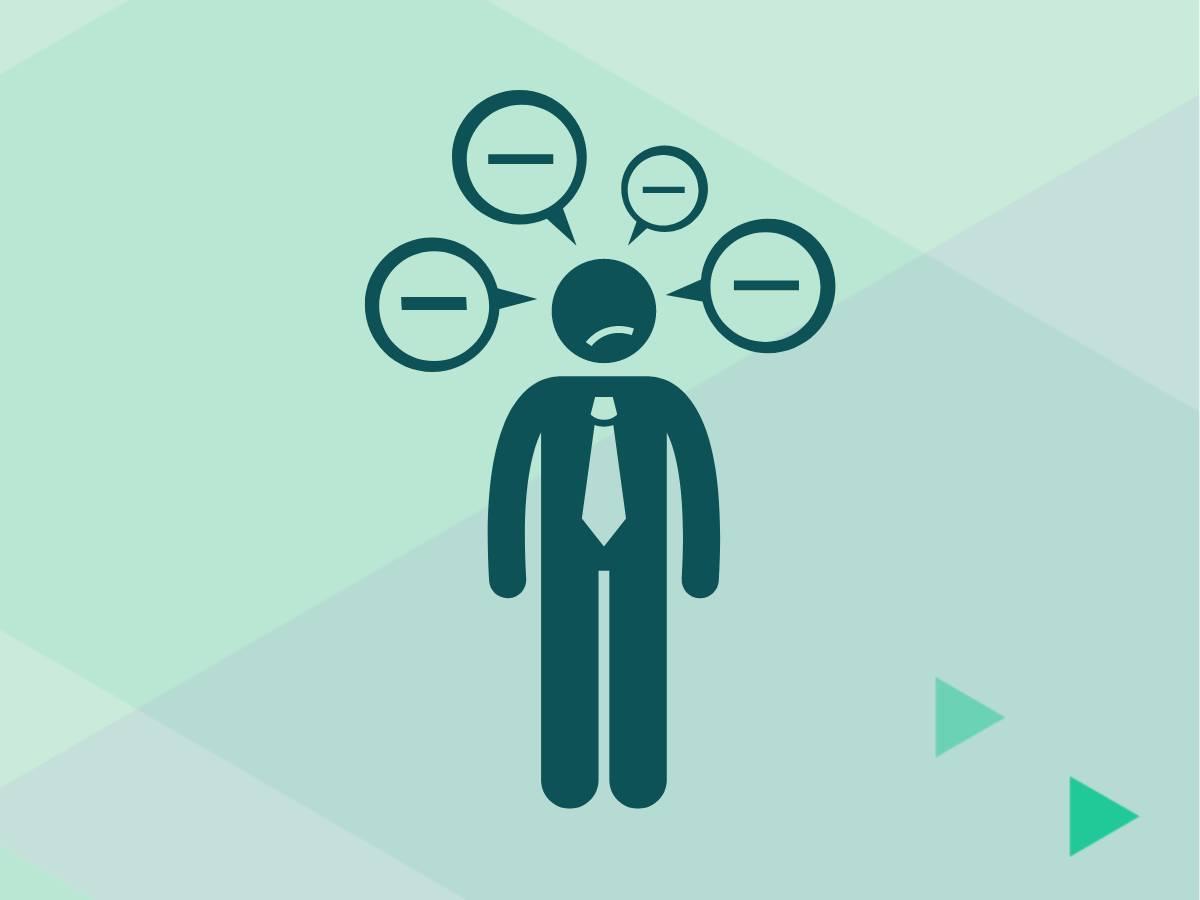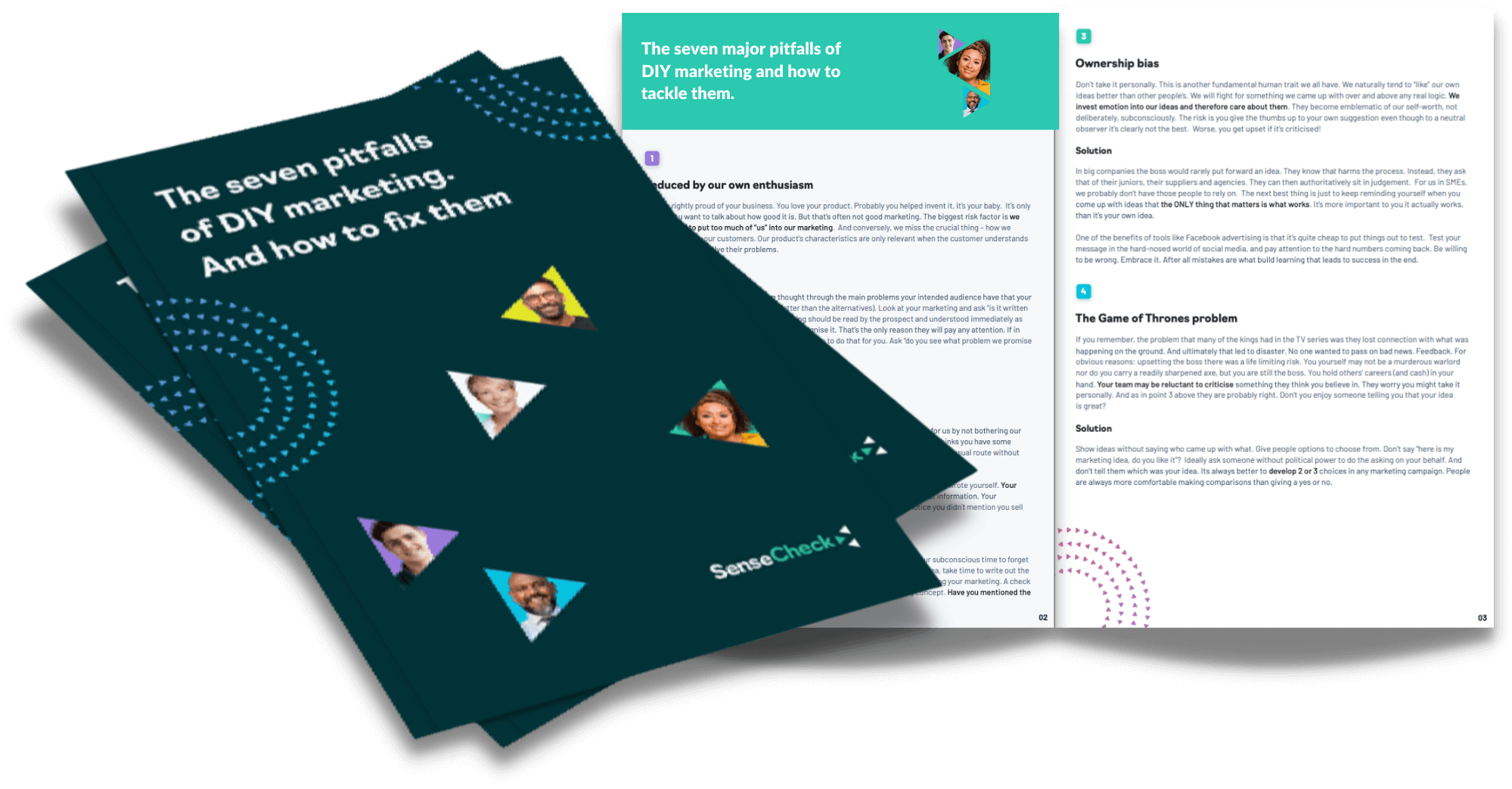
You are an experienced marketer. Why would you bother with Sensecheck?
As marketers, we understand the theory of defining our proposition and then articulating it powerfully with compelling creative ideas.
We’ve been doing that for a while and have a track record built on learning by doing. Frankly the mistakes we made in the past mean we are better qualified to get it right in the future.
We read plenty on the topic of marketing success, we know many of the pitfalls and have a circle of smart people to get input from.
So, why exactly should I put Sensecheck into my process? It’s not as though I’m not busy enough already and those deadlines never get any easier….
Let me give you three solid reasons.
The first is about unconscious bias. It doesn’t really matter how experienced or smart we, are the human brain’s underlying program contains biases. It tricks us. What we perceive as us taking a savvy and informed evaluation of a piece of marketing isn’t true. It’s simply not possible for us to see our marketing the same way a disinterested third party will. The most crucial “problem” is because we already know what we are trying to say, our brain will read that into it. Our eyes will “see” the message, even if it’s not really there. Our brain will screen out things it already knows are irrelevant or unhelpful. And it will add in things it knows already. It’s trying to help us as it does day in day out. But in this case, not so helpful.
The second is about honesty. Brutal honesty. Everyone has agendas. The designer gives you the work. The people around you give you an opinion. Even yourself, your agenda is to be seen as being a “great marketer”. I know mine is! These agendas mean that real honesty is usually missing in our business lives. And “honest” is when the truth is found. Maybe you don’t really mind working with only a fraction of the input you could get, but my bet is that as a professional passionate about improving results, what you really yearn for is to know what people really think. A key dimension of Senscheck’s panel is objectivity. Supported by anonymity. It may be the first time you hear what people really think.
The third is about persuasion and confidence. It’s likely you may want to execute marketing that is a bit more creatively challenging than your boss has agreed to in the past. That means you are up against his or her personal opinions. The objective perspective of 5 other experienced external business people may help swing the decision from the mundane to the “brave”. Confidence is a dimension of this. How can you develop greater confidence in your instincts? Your confidence will win over other people, but where do you turn to build it up in the first place? At Sensecheck we believe that great marketing is about taking risks, pushing the boundary. Safe (ie boring) simply doesn’t work in today’s cluttered world. But obviously, there is a line between brave and foolhardy. Maybe a second opinion will help your work out where that line is.
Sensecheck’s panel has no axe to grind. No agenda other than telling you what they think. And no biases other than the same ones your customers/prospects may have. Certainly no biases around your business.
If the idea of getting a second opinion still makes you nervous, may I suggest you join the panel. Do a review for other people (you get sent a copy of the resulting report). See how it works on other people’s ideas before you try it for your own.
Finally a point about confidentiality. Yes, your marketing will be seen by 5 other people in the world outside. But the idea is only seen by the few elected people, all of whom have signed the membership confidentiality pledge. We assume your marketing will go public fairly soon anyway so we’d think the risks are low. And remember, only you get to see the report. It’s up to you how you use it. Or not. But at least you have another powerful ingredient to your decision-making.
Roger Jackson
CEO of ShopperIntelligence
Founder of SenseCheck
